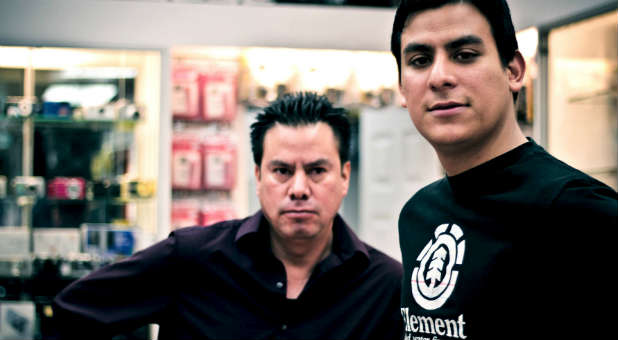
I once tweeted, "The hardest conversation is often the most needed."
It was as a result of my counsel to another pastor in a leadership setting. He knew he needed to approach an issue, but he wasn't sure how to do so. I understand. If it were easy we wouldn't struggle to do it.
I find myself encouraging those type conversations often. Apparently, from the retweets and direct messages I received, it's a frequent issue. In relationships, there are consistent needs to have difficult conversations. Often leaders, spouses and friends avoid them, but it's often to the detriment of the relationship.
I decided to expand beyond Twitter length encouragement.
Do you need to have a difficult conversation?
Here are seven necessary steps you'll need to take:
Conviction
There first needs to be some sense of urgency towards having the conversation. People who have frequent hard conversations just to have hard conversations are obnoxious at best. Hard conversations, where you challenge someone, confront a situation or address sensitive issues, should be rare—not normal. Make sure you know it's something you must do in order to improve the situation or protect the relationship.
Prayer
You should pray as a part of the conviction process also. And, you should pray after you know you are moving forward. Pray for God's favor on the conversation, open hearts for you and the other party and for God's resolution to be realized. And enter the conversation in a spirit of prayer.
Notes
Jot down your main points you are trying to make. You might read THIS POST. It's about how to write a sensitive letter, but the points in it will help you prepare for a face-to-face conversation also. (And, there are times a letter is best.) You want to be prepared. You want to remember your thoughts clearly and not from emotion. The main issues, as you can read in the post, are to be factual and to the point, but kind, truthful and helpful. Be willing to assume blame where needed.
Setting
Time and place are critical in difficult situations. You should never "attack" someone in ways that will embarrass them more or add unnecessary stress to the situation. You shouldn't have a hard conversation when you're being motivated simply by emotion. You should find neutral ground. Be strategic with your when and where.
Rehearsal
Go through your notes and your part of the conversation. Imagine if someone was having this conversation with you and how you would respond. You can't determine how they will respond, but you can rehearse how you will respond. The more you do this the better you'll be able to control your emotions when the time comes.
Action
Do it. You need to plan the when, as stated above, but the longer you wait the harder and more awkward it will be. Have the conversation while you're prepared and in a prayerful mindset about the situation.
Follow up
Most likely the conversation won't end with the conversation. You will need to check in with the person, send them a follow up email, phone call or even another meeting. You may need to reiterate your care for them personally even after the conversation. The Scripture is clear—as much as it depends on us we are to live at peace with everyone. If nothing more is needed between you and the person, at least take time to think through how the conversation went so you can learn from it and be better prepared for future difficult conversations. You can be assured of additional opportunities.
I hope this helps. Don't avoid the hard conversations. They are often the most needed. But, always be wise about having them.
What steps or advice would you add? ![]()
Ron Edmondson is the senior pastor at Immanuel Baptist Church in Lexington, Kentucky. For the original article, visit ronedmondson.com.
Get Spirit-filled content delivered right to your inbox! Click here to subscribe to our newsletter.
Dr. Mark Rutland's
National Institute of Christian Leadership (NICL)
The NICL is one of the top leadership training programs in the U.S. taught by Dr. Mark Rutland. If you're the type of leader that likes to have total control over every aspect of your ministry and your future success, the NICL is right for you!
FREE NICL MINI-COURSE - Enroll for 3-hours of training from Dr. Rutland's full leadership course. Experience the NICL and decide if this training is right for you and your team.
Do you feel stuck? Do you feel like you’re not growing? Do you need help from an expert in leadership? There is no other leadership training like the NICL. Gain the leadership skills and confidence you need to lead your church, business or ministry. Get ready to accomplish all of your God-given dreams. CLICK HERE for NICL training dates and details.The NICL Online is an option for any leader with time or schedule constraints. It's also for leaders who want to expedite their training to receive advanced standing for Master Level credit hours. Work through Dr. Rutland's full training from the comfort of your home or ministry at your pace. Learn more about NICL Online. Learn more about NICL Online.


